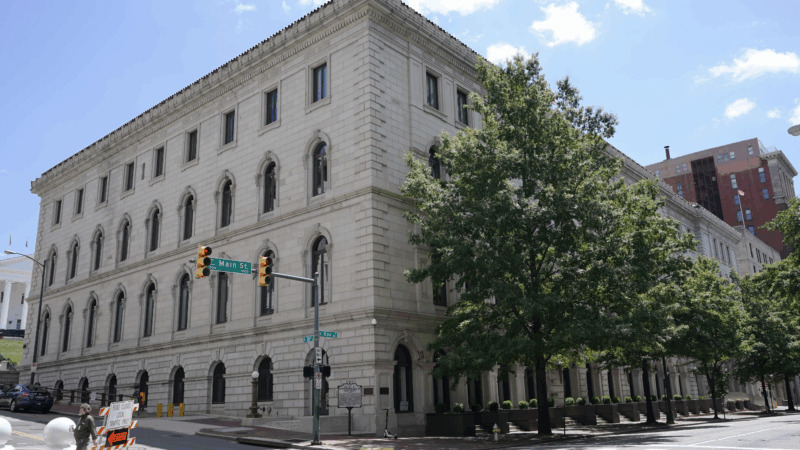Lynch v. Alabama Ruling
In a case with implications for school funding across Alabama, a federal judge excoriated Alabama’s property tax system but ultimately rebuffed the plaintiffs who alleged the system is unconstitutionally racist.
On Oct. 21, U.S. District Judge Lynwood Smith issued an 854-page opinion that seemed poised to turn Alabama’s property tax system on its head. But in the end, though clearly outraged by “unequal and inadequate public school funding,” Smith deferred to the will of the legislature, to the state’s Constitution, and to state Supreme Court precedent.
Alabama has the lowest property taxes in the nation, and provisions that protect farmers, timber owners, and other landowners bring in little local funding for school systems in rural areas. Homes, farms, and timberland are taxed at 10 percent of market value, but “current use” provisions mean property is assessed at its value as, say, productive farmland or timberland. That tends to come in much lower than that 10 percent assessment level would, which results in a lack of local revenue in districts with little developed real estate or commercial enterprise.
In 2008, parents of students in Lawrence and Sumter Counties sued the state on behalf of their children. They said the property tax system deprives rural, mainly black districts of the funding needed for an education comparable to that in other parts of the state, and that the history of property taxation and school funding in Alabama is a continuous narrative of state-sanctioned racism. They cited dilapidated buildings, limited programs, and textbook shortages as evidence. But according to Judge Smith, a Clinton appointee, the plaintiffs did not prove that the effects of the lowest-in-the-country property taxes fall along racial lines.
“None of this is meant to say, however, that the court is satisfied as to either the quality or the equality of public education in this state,” he wrote, adding that the lack of adequate funding hinders the life prospects of rural students, black and white, and therefore the long-term economic viability of the state.
Six months after a four-week trial that included more than 700 exhibits, 1,000 pages of documents, and testimony from historians on Reconstruction, cotton farming, poll taxes, George Wallace, the Civil Rights Movement, desegregation, and busing, Smith delivered his unusually long opinion.
State Attorney General Luther Strange said Smith’s ruling, “confirms the State’s consistent position that Alabama’s property tax structure does not violate the United States Constitution. It is the prerogative of the citizens of Alabama, through their elected representatives, to structure a tax system in a manner that best serves their interests. The Office of Attorney General remains committed to defending and vindicating this important right whenever necessary.”
But plaintiff’s attorney James Blacksher described it differently Tuesday evening:
“Judge Smith issued this exhaustive ruling, and then at the eleventh hour changed his mind. He had all these findings of fact that, when correct legal principles are applied, should find for the plaintiffs. If we appeal, that will be our argument. I’m going to recommend [to the plaintiffs] that we appeal.”
The plaintiffs and their legal team, including Blacksher, are planning to meet on Thursday to discuss that option.
Photo of farmland by Oakley Originals; photo of old textbook by CrazyTales562, courtesy of Flickr.
Federal judge acknowledges ‘abusive workplace’ in court order
The order did not identify the judge in question but two sources familiar with the process told NPR it is U.S. District Judge Lydia Kay Griggsby, a Biden appointee.
Top 5 takeaways from the House immigration oversight hearing
The hearing underscored how deeply divided Republicans and Democrats remain on top-level changes to immigration enforcement in the wake of the shootings of two U.S. citizens.
Snowboarder Chloe Kim is chasing an Olympic gold three-peat with a torn labrum
At 25, Chloe Kim could become the first halfpipe snowboarder to win three consecutive Olympic golds.
Pakistan-Afghanistan border closures paralyze trade along a key route
Trucks have been stuck at the closed border since October. Both countries are facing economic losses with no end in sight. The Taliban also banned all Pakistani pharmaceutical imports to Afghanistan.
Malinowski concedes to Mejia in Democratic House special primary in New Jersey
With the race still too close to call, former congressman Tom Malinowski conceded to challenger Analilia Mejia in a Democratic primary to replace the seat vacated by New Jersey Gov. Mikie Sherrill.
A daughter reexamines her own family story in ‘The Mixed Marriage Project’
Dorothy Roberts' parents, a white anthropologist and a Black woman from Jamaica, spent years interviewing interracial couples in Chicago. Her memoir draws from their records.





